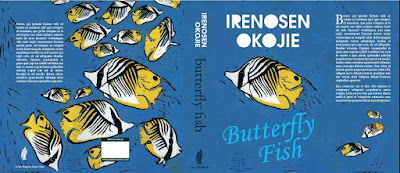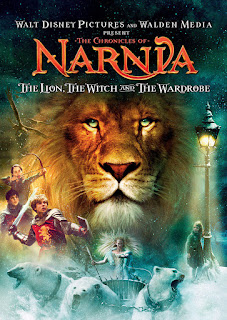They were joined by novelist Susan Barker, novelist and non-fiction writer Ann Morgan, and poet Denise Saul.
 |
| From LtoR: Emily Midorikawa, Emma Sweeney, Susan Baker, Denise Saul and Ann Morgan |
The evening started with Ann Morgan who spoke about the ideas behind writing A Year of Reading the World. This started when Ann decided to read a book from every country in the world within a year and recorded this journey on the blog. The problems were many and and when she got to Burundi, the chances of finding a book that had been translated into to English were looking remotely slim. She turned to the refugee community and sent out some emails. She had an email from Edouard. He told of his old classmate from Burundi who had published two novels in English. Her name was Marie-Thérèse Toyi. She had lived through the Burundi genocide and relayed this through her fictional characters in Weep Not, Refugee. Ann also told us about the novelist Hamid Ismailov, Uzbek journalist, who was put on a watch hit list and whose books were burnt in the street. He and his family fled Uzbekistan to Switzerland. He explained after he fled he was removed from his audience. He had no one to write for and had to deal with the pain of being exiled from his language. Marie-Thérèse and Hamid were two of the big writing relationships from the book and Ann is still in touch with them today. She also said that whatever challenges we have, we all have barriers - confronting those barriers is very important and at the moment we still have freedom of speech and that we must fight to preserve that.
Next up was Susan Barker who told us about her non-writer writing friendship with Liang Junhong, in Shanghai. Susan had gone there to do research for a novel. She met Arts Officer, Liang at the British Council in 2007. She helped Susan find somewhere to live and also with the everyday things like joining a library, or speaking to electricians - though she couldn't help with the smog, Susan had gone to Shanghai to immerse herself in the culture and history but more often than not found herself locked in her room searching Shanghai on the Internet. Liang dragged her out and she learnt a lot through her. Susan found the transition from the UK to China difficult, the language in particular and without Liang's support she wondered if she would have coped. The research eventually became her third novel The Incarnations (Doubleday, July 2014) about a taxi driver in contemporary Beijing and interwoven with tales from the Tang Dynasty, the invasion of Genghis Khan, the Ming Dynasty, the Opium War, and the Cultural Revolution.
Poet Denise Saul spoke about her writing relationship with the charity Connect and how through her personal experience of aphasia, her late mother had a stroke, she created the videopoem: The Aphasic Mind. She went on to found the project Silent Room: A Journey of Language. This was a collaboration between Denise and film-maker, Helmie Stil. Aphasia is a communication disability which occurs when the language centres of the brain are damaged. The video poem focuses on language from the perspective of ‘the outsider’ or those who engage with an aphasic individual. Denise wanted to break down barriers in her writing and enter into new spaces, the carer's narrative and the disabled black body to bridge the gap and settle in those spaces. Denise said that everyone should be able to communicate and that it is important to explore other spaces as well as other disciplines. She added that she didn't really know what friendship was, it was slippery to her. She spoke more about the friendship of pleasure, of utility and virtue and that for her it was often about utility. Her top five tips for friendship included: creating and occupying new spaces; networking; accountability - she liked it when friends asked if she had finished a poem or collection, it kept her on her toes; collaboration - don't be afraid to cross boundaries; and sharing space.
As the event came to a close and myself and Lindsay, my writing friend made our way home, I reflected on our literary friendship...
Next up was Susan Barker who told us about her non-writer writing friendship with Liang Junhong, in Shanghai. Susan had gone there to do research for a novel. She met Arts Officer, Liang at the British Council in 2007. She helped Susan find somewhere to live and also with the everyday things like joining a library, or speaking to electricians - though she couldn't help with the smog, Susan had gone to Shanghai to immerse herself in the culture and history but more often than not found herself locked in her room searching Shanghai on the Internet. Liang dragged her out and she learnt a lot through her. Susan found the transition from the UK to China difficult, the language in particular and without Liang's support she wondered if she would have coped. The research eventually became her third novel The Incarnations (Doubleday, July 2014) about a taxi driver in contemporary Beijing and interwoven with tales from the Tang Dynasty, the invasion of Genghis Khan, the Ming Dynasty, the Opium War, and the Cultural Revolution.
Poet Denise Saul spoke about her writing relationship with the charity Connect and how through her personal experience of aphasia, her late mother had a stroke, she created the videopoem: The Aphasic Mind. She went on to found the project Silent Room: A Journey of Language. This was a collaboration between Denise and film-maker, Helmie Stil. Aphasia is a communication disability which occurs when the language centres of the brain are damaged. The video poem focuses on language from the perspective of ‘the outsider’ or those who engage with an aphasic individual. Denise wanted to break down barriers in her writing and enter into new spaces, the carer's narrative and the disabled black body to bridge the gap and settle in those spaces. Denise said that everyone should be able to communicate and that it is important to explore other spaces as well as other disciplines. She added that she didn't really know what friendship was, it was slippery to her. She spoke more about the friendship of pleasure, of utility and virtue and that for her it was often about utility. Her top five tips for friendship included: creating and occupying new spaces; networking; accountability - she liked it when friends asked if she had finished a poem or collection, it kept her on her toes; collaboration - don't be afraid to cross boundaries; and sharing space.
Finally Emily Midorikawa spoke about how she and Emily Sweeney had met in 2001 in a remote part of Japan. It was quite sometime after they met that they finally admitted they were both writing. They then began to post each other letters of writing and anxiously wait for feedback. Emily spoke of how literary friendships are important for writers. They began to discuss other writing relationships and realised the well-known writers were often about men Shelley and Byron, Wordsworth and Coleridge for example. They wondered if Charlotte Bronte had a writer friend apart from family members or Virginia Woolf in the male dominated Bloomsbury Set. They discovered there were female friendships but they hadn't been mythologised in the same way as the men. Emma and Emily went from friends who had something in common to actively working together both as tutors, and collaborators on a project. They created the blog Something Rhymed. This celebration of female literary friendship includes past authors as well as contemporary writers. From the blog came their forthcoming book: A Secret Sisterhood, which will look at the literary bonds between Jane Austen and amateur playwright, Anne Sharp; Charlotte Brontë and feminist author, Mary Taylor; George Eliot and Harriet Beecher Stowe; and Virginia Woolf and Katherine Mansfield.
A Secret Sisterhood will be published, by Aurum Press in the UK and Houghton Mifflin Harcourt in the USA, in late 2017. The year coincides with the bicentenary of Jane Austen’s death.
A Secret Sisterhood will be published, by Aurum Press in the UK and Houghton Mifflin Harcourt in the USA, in late 2017. The year coincides with the bicentenary of Jane Austen’s death.
The panel shared their own experiences of literary friendship and offering practical advice for new and experienced writers on ways in which they can forge and develop meaningful writing relationships of their own.
As the event came to a close and myself and Lindsay, my writing friend made our way home, I reflected on our literary friendship...





























